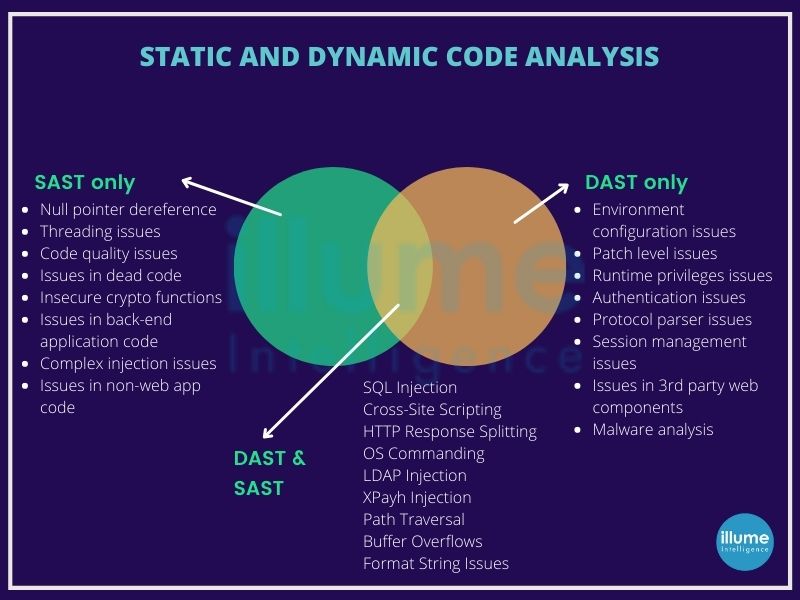Boosting your applications' performance with static and dynamic code analysis
Since the beginning, there had been comparisons between the static and dynamic code analysis.
Static code analysis helps in finding the flaws in the program without executing it. Source code, byte code or application binaries are tested for security vulnerabilities. Static analysis tests the internal structure of the application.
Dynamic code testing the application in the running phase looks for the outside security vulnerabilities. It executes the software and validates the output with the expected outcome. The main idea is to confirm that the software product is working in conformance with the business requirements.

Static And Dynamic Code Analysis: which one to choose?
When it comes to testing the application, dropping any of these methods is foolish. For the complete testing of the application, both are equally important. Testing the code for its coding flaws as well as functional flaws makes it reliable, durable and compatible.
Various tools can be used to perform these testing but below are reasons that differentiate our testing from others.
1. Performance - Static analysis tool helps us to find the common coding pattern causing poor performance. This keeps us updated with the coding pattern with a better way out.
2. Reliability - Removing all the unwanted codes that may not be affecting the functioning of the code but may lead to future problems like downtime.
3. Security - Using industry-standard testing tools to ensure the security of the application.
4. Style - Maintaining a uniform coding style that is well suited to the testers for automation and manual testing.
Both Static and Dynamic code analysis have their benefits and shortcomings but when used in combination helps in strengthening the application, making it strong against security and mishandling threats. A well-tested code can be easily integrated with any other application as and when required in future and is well accepted by the universal standards and regulations.
Are you securing your applications with Static and Dynamic code analysis? We can help in securing your business.







